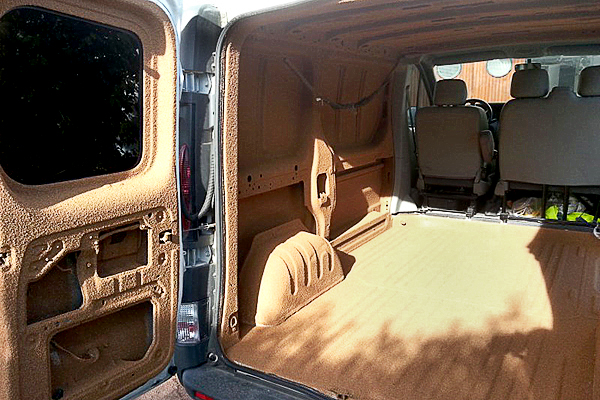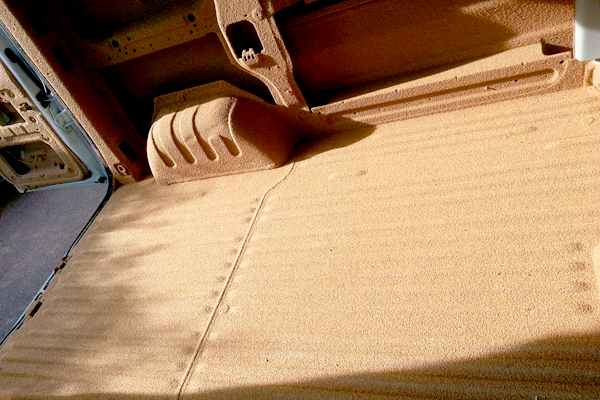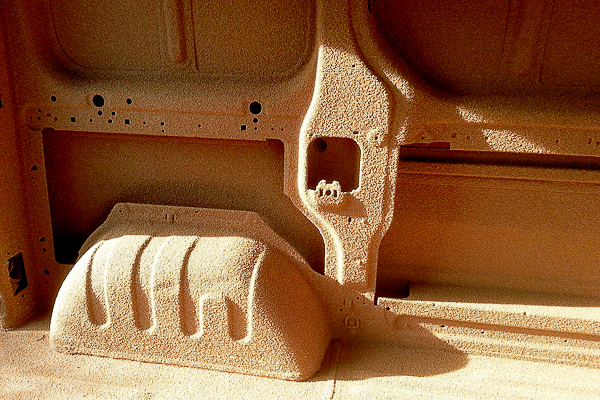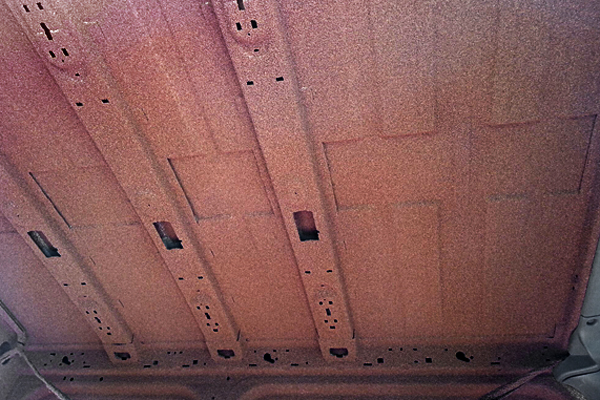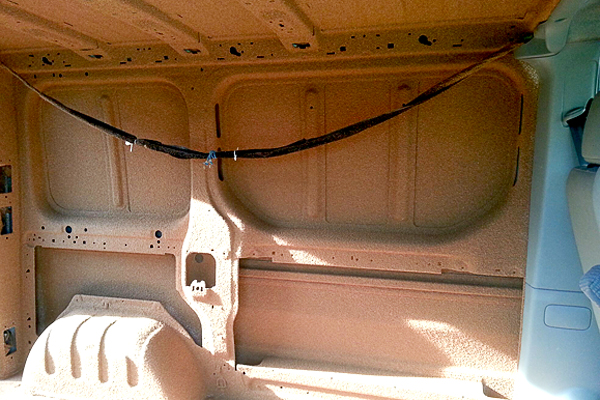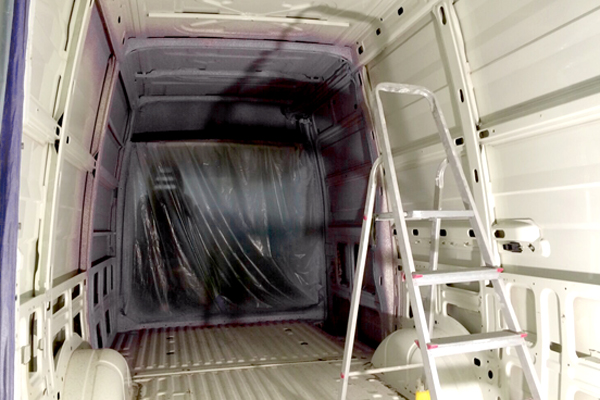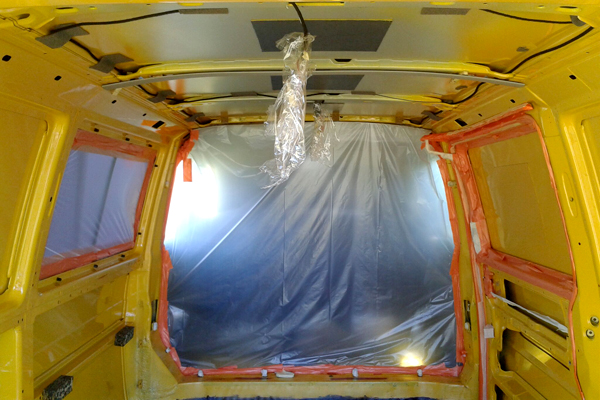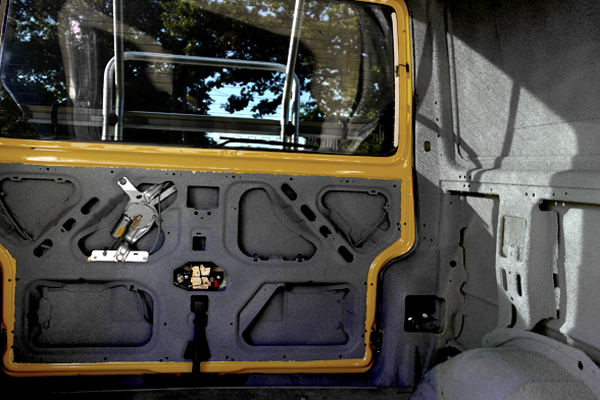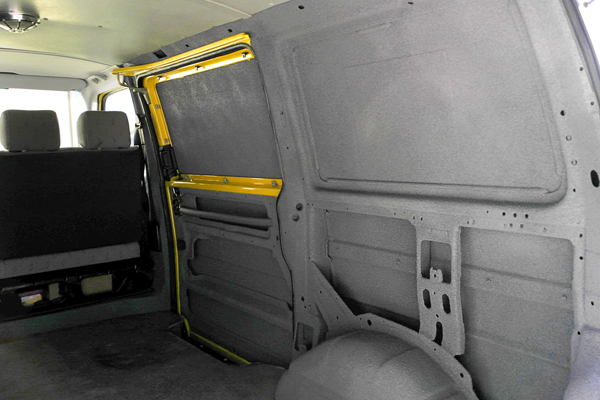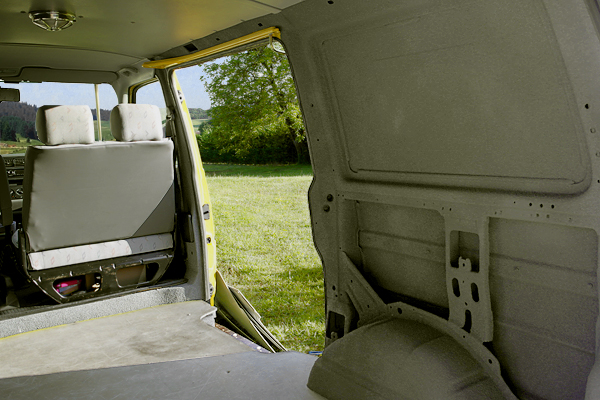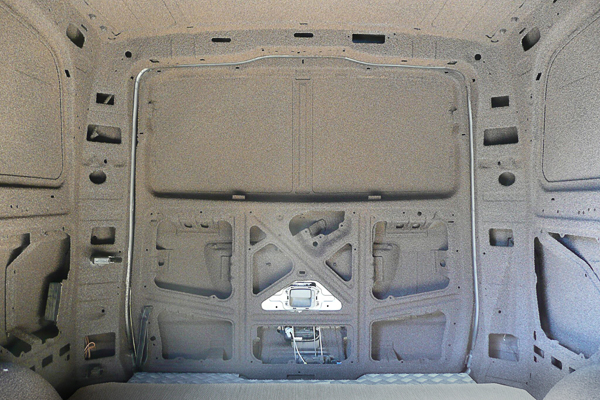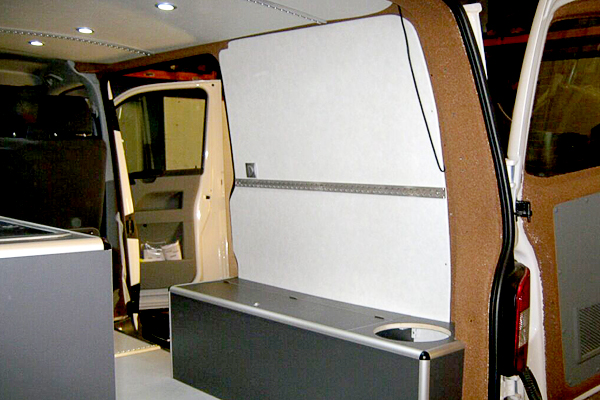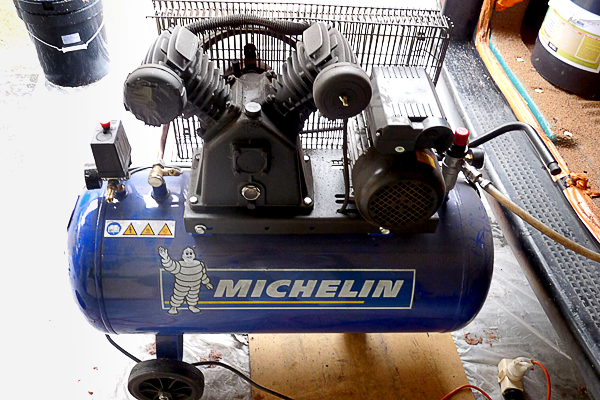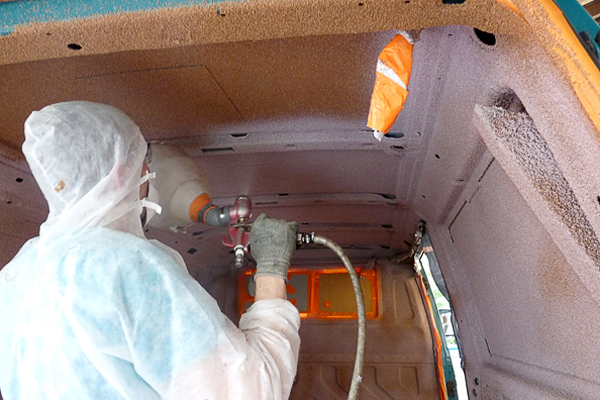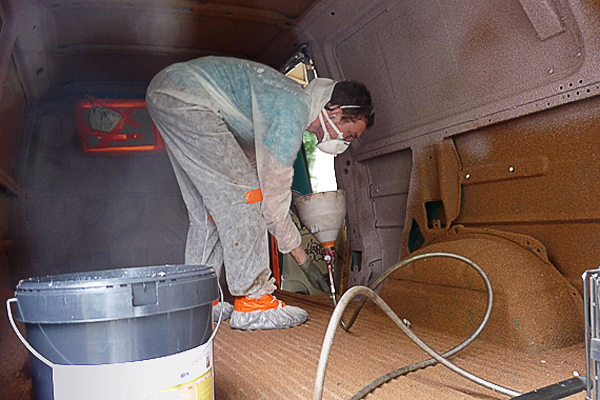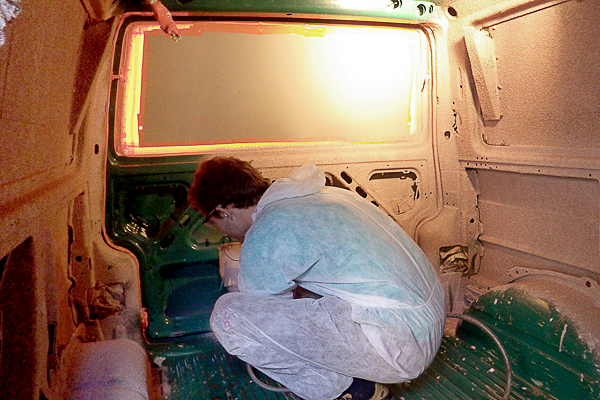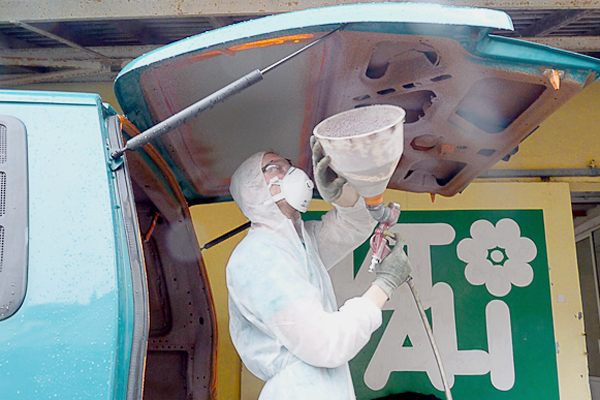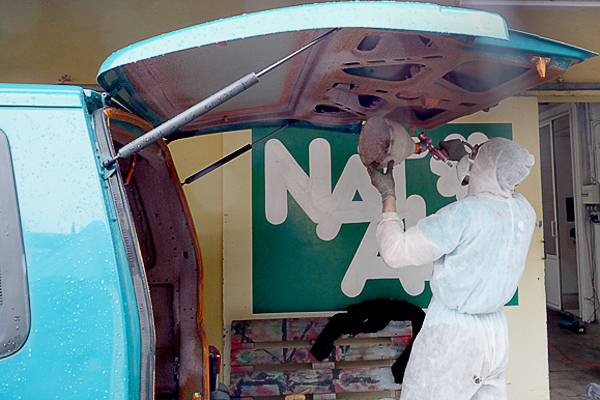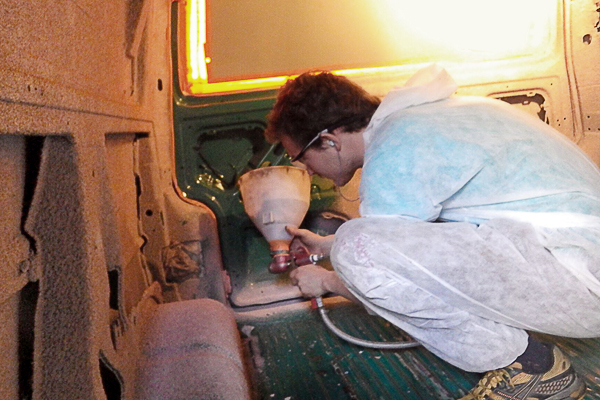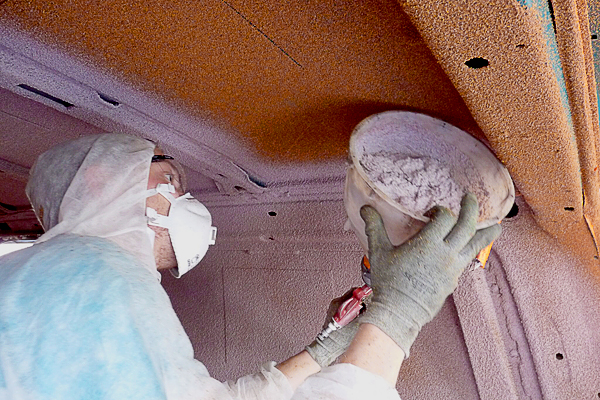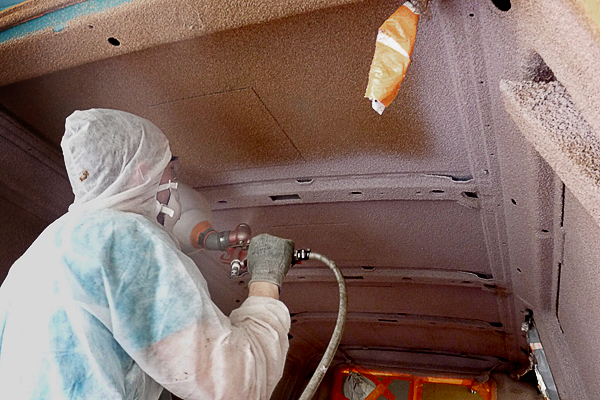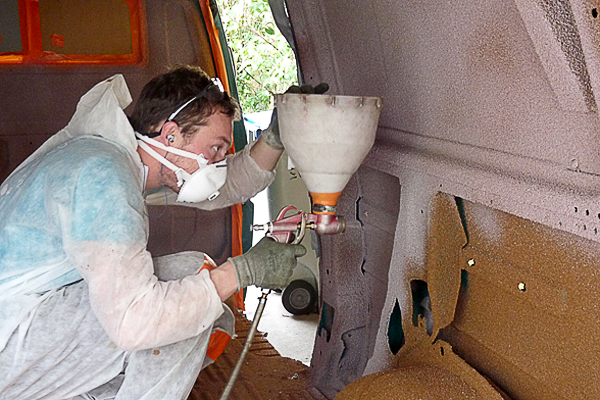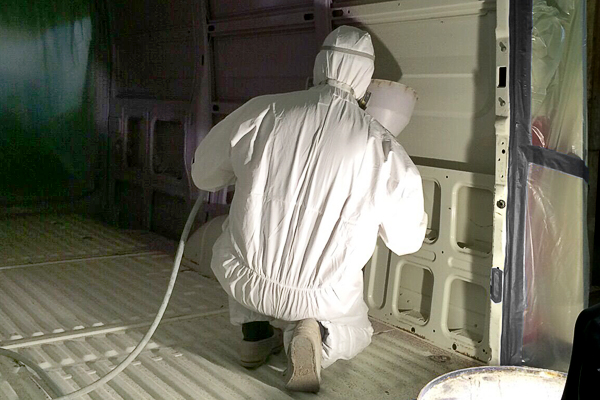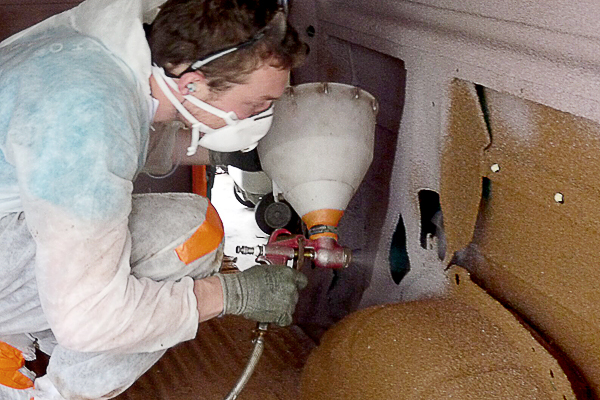VANS
Camping-cars, Mobil-home
Seacork for Vans is sprayed cork.
It is THE solution for eliminating condensation in any van or camping-car.
.
COMFORT
In so doing, Seacork Spray eliminates condensation. This greatly reduces dampness inside the van. It provides considerable acoustic damping too.
Seacork Spray has an insulating effect but it provides only limited insulation. You can cover the cork (or not) with an insulating material to have much better control of the temperature inside.
Any insulating material will be better than none. Expanded cork will give the best results. We have special adhesives for this purpose.
Putting insolation on top of Seacork Spray, if only to replace structural volume, should be done before applying any decorative wall covering.
HOW IT LOOKS
Every molecule of the cork and resin is dyed through and through. This eliminates the risks of bleaching or discolouration. In the event most of our customers prefer the natural cork colour. And nothing prevents the use of acrylic paint at any time.
WEAR & TEAR
Should an accidental scrape cause the colour of the cork to contrast with a lining, the problem can be fixed with acrylic paint.
VALUE FOR MONEY
TECHNICAL INFO
Seacork Spray is made mostly from recycled materials of which wine bottle corks represent a very large part. Different tests show that it meets current standards for waterproofing, microfissures, and so forth. The results of these tests are published on line.
Seacork Spray is produced without solvants. This improves the air quality inside the cabin and fulfil all current norms for volatile organic compounds.
UPKEEP
Use any cleaning product sold in supermarkets and a brush with hard bristles, just as you would for cleaing a tiled floor. It is just as easy to clean a cork surface as tiles but some precautions should be taken.
Mix the cleaner with water in a bucket according to instructions on the package and start brushing. Then rinse carefully, to get rid of all traces of the cleaner.
You can cover scratches with acrylic paint.
APPLICATION
Anyone who is reasonably good at do-it-yourself tasks can do the spraying. To do a proper job you have to take some precautions. Don’t hesitate to contact us if you have any doubts. Take a look at our video of spraying cork on a wall. The same principles apply to the hulls of boats.
At least two or three coats are required to obtain a achieve a really good thermal bridge. One container of Seacork Spray should cover around 6 square meters for two coat or 4 square meters for three coat.
RESELLERS
WHAT OUR CUSTOMERS SAY
Retrouvez des témoingnages sur les utilisateurs ici
Seacork Spray provides very thin layer of insulation, 2 mm or slightly more depending on how you apply it. It works best when covering every bit of the interior surface.
The idea is to break the thermal bridge between the outside and the living space inside. Condensation is effectively eliminated. This means less humidity and a perception of greater comfort.
In practice Seacork Spray is more a “comfort controller” than an actual insulator for two reasons. It represents the best possible compromise between thermal insulation and space saving. And it provides a bonus because it absorbs much of the noise that comes from road travel.
We can provide it in 50 different standard colours including the natural (un-dyed) colour of the cork.

